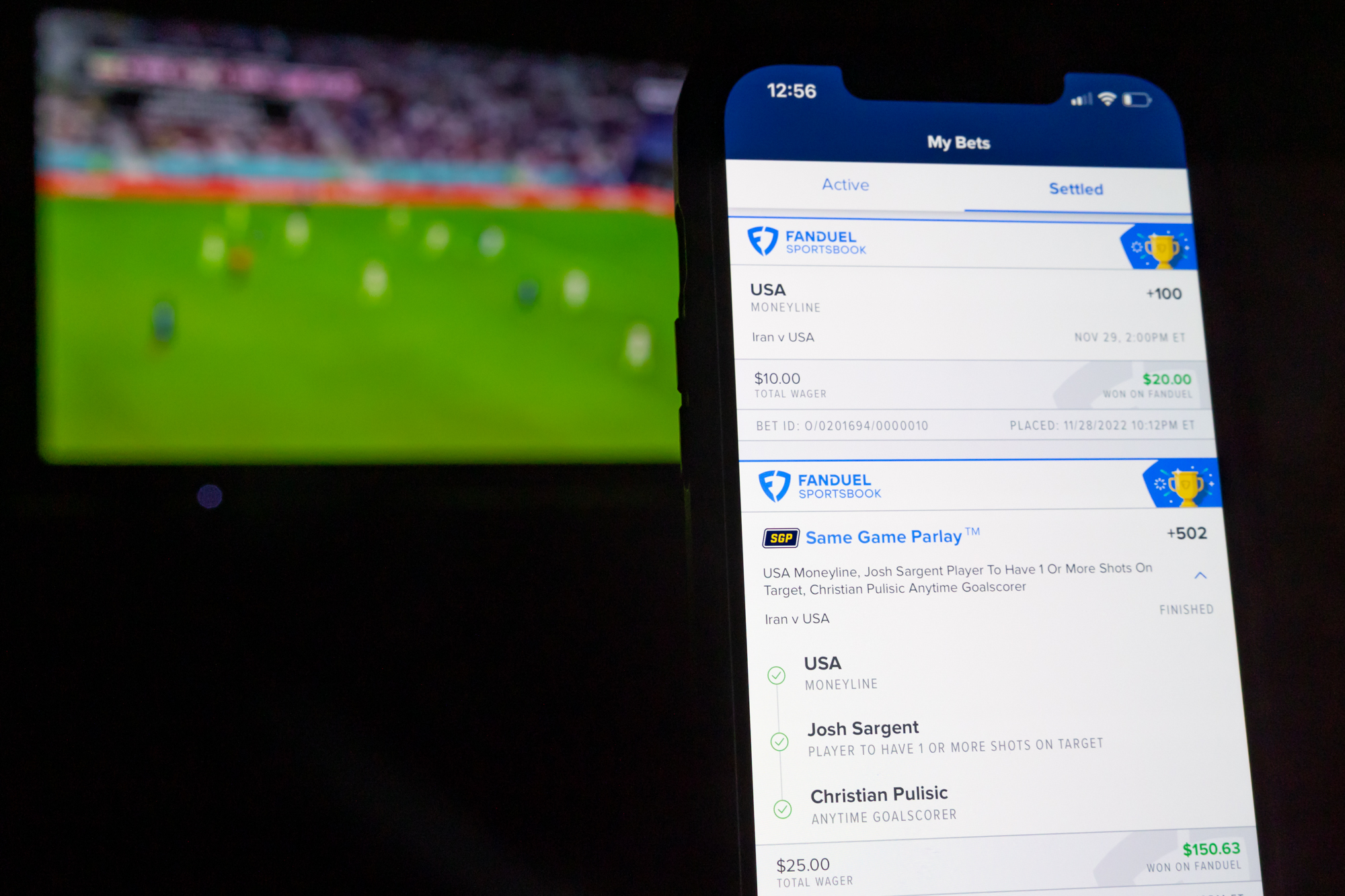Views expressed in opinion columns are the author’s own.
I don’t follow sports. I only go to the occasional University of Maryland game. Nevertheless, it’s hard to miss what I’m told every ad break: Sports betting just went live in Maryland.
The Unlawful Internet Gambling Enforcement Act, an attempt to reduce online gambling, actually created a loophole for the foundation of online sports betting. This created massive corporations such as FanDuel and DraftKings within a new $70 billion industry.
This industry needs to be heavily regulated in Maryland since it shares several similarities to gambling and its incredible accessibility makes it easy to abuse. To protect consumers and provide the best opportunity for rational decision making, Maryland legislators should restrict luck-based betting, ban advertisements and raise the minimum age for online sports betting to 25.
The Supreme Court ruling of Murphy v. National Collegiate Athletic Association left it up to the states to determine if sports betting was explicitly legal and so far, 23 states and Washington, D.C., have active mobile sports betting options. The main reasoning behind sports betting’s quick legalization is the distinction between sports betting and gambling. Sports betting apps are considered games of skill, not luck.
This is important because a game of skill wouldn’t fit the legal definition of gambling and its accompanying regulations, which is exactly what is happening with sports betting.
Despite sportbooking companies’ claims of bets being based on skill, there are many luck-based bets players can partake in. One of the most popular bets on DraftKings is for the outcome of the opening coin toss. Guessing heads or tails clearly has nothing to do with skill, but this is not the only example of arbitrary bets.
For the last Super Bowl, it was possible to place bets on ridiculous things such as how long the national anthem would be, who the MVP would thank first and what color the Gatorade shower would be. There were even several bets for Rihanna’s halftime show performance, including on what she would wear or sing.
If Maryland wants to make sports betting legal on the basis that it’s skill-based, then the state must ensure that only skill-based bets are being placed by toughening the legislation surrounding types of bets allowed.
Another issue arises with relentless sports betting marketing. Extreme marketing campaigns both act to normalize sports betting and directly target susceptible consumers.
The online presence of sports betting comes with the territory of massive access to user data, which can be used to eerily predict a user’s habits and potential profitability. Users of Sky Bet, a British sister company to FanDuel, have seen how this information was used to target marketing at users with gambling addictions.
Sky Bet users were often presented with alluring promotions that sports betting companies also use here. In the first eight days of Maryland’s online sports betting, there was a combined nearly $64 million in free promotional wagers available. But all that glitters isn’t gold.
One favorite promotion is risk-free bets, where users put in real money but are promised a refund if they lose the bet. However, it’s not a traditional refund, but an equal amount given in credits to be used for other bets. This incentivizes users to continue to gamble — perhaps more than they initially wanted to.
These combined issues of luck-based betting and aggressive marketing are especially harmful when considering online sportsbooks’ target demographics. Unlike casino gambling, which is restricted to people 21 and over, sports betting is legal for those 18 and up in most states.
Online sports betting makes gambling as close to you as your phone is — no longer a planned trip the way casinos are. This makes impulsive decisions so much easier. With greater accessibility, online betting can be considered more dangerous than traditional gambling, especially for younger users.
People under 25 whose brains are not done developing are more prone to impulsivity and risk taking, putting them at high risk for gambling addictions. Maryland legislators need to provide the best opportunity for players to make rational decisions. Raising the minimum age for online betting to 25 would do this. Sports betting has taken America by storm, and if it’s going to be legal, it needs to be regulated. The market’s loose restrictions make consumers prone to addiction and massive financial losses. Maryland needs to act now to protect its players.
Kyra Freeman is a sophomore philosophy, politics and economics major. She can be reached at freemankyra04@gmail.com.



